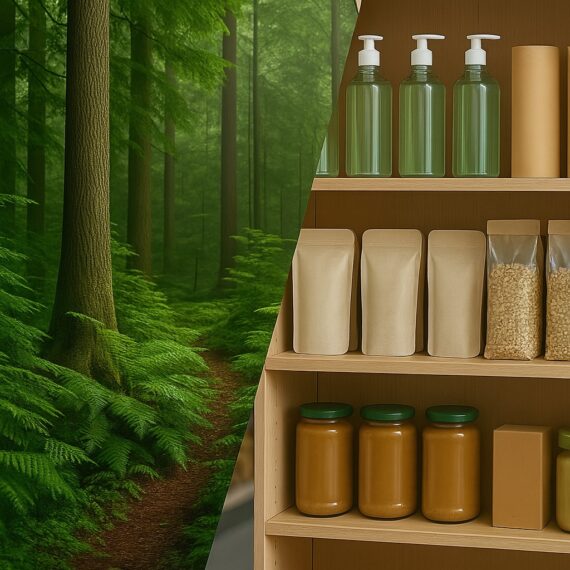As sustainability shifts from buzzword to baseline, this blog explores how rising consumer expectations—especially among Gen Z—are reshaping the future of business and demanding real innovation from brands.

What if the future of your business depended not just on your product, but on your planet? Today, as global spending habits evolve, businesses face a simple truth: sustainability is no longer optional. Consumers aren’t just shopping for products; they’re shopping for values. This shift is especially pronounced among younger generations who are redefining what it means to be a responsible consumer. Here’s a closer look at how these trends are taking shape — and how Gen Z sees them.
According to GWI’s 2025 Consumer Spending Trends report, 60% of Millennials and 58% of Gen Z are willing to pay more for sustainable products. This reflects a major shift: environmental responsibility is becoming as important as price and convenience. Brands that don’t meet these expectations risk losing relevance.
Paying extra for sustainability feels like a small price to slow down a crisis we didn’t create. Every purchase is a quiet attempt to counter the anxiety fueled by headlines about wildfires, floods, and shrinking ice caps. Whether it’s choosing ingredients like rice bran oil that haven’t yet scaled, paying extra for chemical-free fast-food wrappers, or splurging on a $40 reusable water bottle to avoid single-use plastic, these choices feel like tiny, personal wins. We’re not expecting perfection from companies but we are watching who’s actually trying.
The global green tech market is expected to grow by $158.8 billion, at a 23.5% annual rate. What was once niche is now essential, as companies invest in renewable energy, carbon reduction, and circular economy innovations.
We want to see big, ambitious solutions. Technologies that feel like they belong to the future, but that fix the damage of the present. When companies innovate boldly in sustainability, it doesn’t just impress us; it gives us a sense of relief that someone, somewhere, is working on problems too big for individuals to solve alone.
Organic product sales in the UK have risen 16%, reflecting how personal wellness and sustainability are now closely linked. Today’s consumers expect products that are good for both their bodies and the environment, creating opportunities for brands that prioritize both.
Wellness today isn’t just self-care. It’s a reflection of personal ethics. I want my skincare routine to align with my values. Clean ingredients? Check. Ethical sourcing? Check. Minimal plastic? Hopefully. It’s no longer enough for a product to simply work; it needs to feel responsible too.
At J & J Green Paper (JJGP), we don’t just respond to shifting consumer expectations, we help define them. As sustainability moves from trend to baseline, our work reflects the balance consumers are searching for: innovation that performs (like our compostable packaging solutions), materials that respect the planet, and transparency that earns trust. The conversations shaping the next generation aren’t hypothetical for us — they’re embedded in every solution we bring to market. Because real leadership isn’t about catching up to what consumers expect. It’s about building what they’ll expect next.
As consumer values evolve, companies are being called to a higher standard — one where ethics, innovation, and responsibility intersect. Gen Z’s purchasing power is growing, and with it comes an expectation for brands to do more than simply sell; they’re expected to lead. What steps are you taking to join the eco-race?
This blog draws on insights from GWI’s article “Consumer Spending Trends: 2025”, which explores how shifting values are influencing global purchasing behavior.